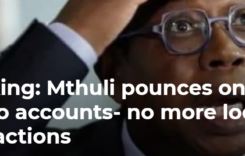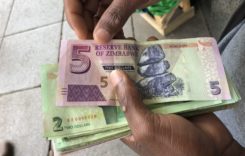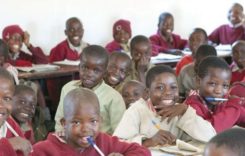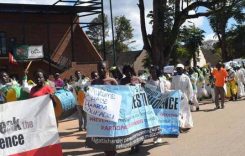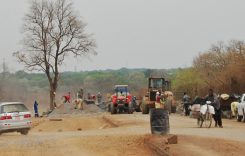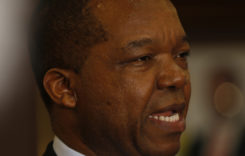Zimbabwe’s government has invited 46 countries and 17 international organisations to observe the August 23 2023 presidential, parliamentary and local council elections, according to Ministry of Foreign Affairs and International Trade spokesperson Livit Mugejo.
The following is a list of the Observer Missions:
1. African Bodies
a) The Southern African Development Community
b) African Union (AU)
c) Pan-African Parliament
d) SADC Electoral Commission Forum (to be invited by ZEC)
e) Common Market for Eastern and Southern Africa (COMESA)
2. All Fifteen SADC Member States
a) Angola
b) Botswana
c) Democratic Republic of Congo
d) Lesotho
e) Madagascar
f) Malawi
g) Mauritius
h) Mozambique
i) Namibia
j) South Africa
k) Swaziland
l) Tanzania
m) Zambia
n) Seychelles
o) Comoros
3. International Organizations
a) Organization of Africa, Caribbean and Pacific States (OACPS)
b) ACP- EU Joint Parliamentary Assembly
c) European Union Commission
d) Non-Aligned Movement (NAM)
e) The Commonwealth
Countries with formalised diplomatic relations
Other countries in Europe
a) United Kingdom of Great Britain and Northern Ireland
b) Belarus
c) Norway
d) Russia
e) Serbia
f) Switzerland
g) Turkey
h) H. North American Countries
i) Canada
j) Mexico
k) United States of America
l) South American Countries
m) Brazil
n) Ecuador
o) Nicaragua
p) Venezuela
4. Caribbean Countries
a) Cuba
b) Jamaica
c) Trinidad and Tobago
d) Barbados
e) Grenada
f) Australia and Pacific Countries
g) Australia
h) New Zealand
i) Papua New Guinea
5. Asian Countries
k) China
l) India
m) Indonesia
n) Iran
o) Japan
p) Malaysia
q) Pakistan
r) Palestine
s) South Korea
t) Thailand
6. Liberation Movements
a) African National Congress (ANC- South Africa )
b) Chama Cha Mapinduzi (CCM-Tanzania)
c) The Mozambique Liberation Front (Frelimo- Mozambique)
d) South West Africa People’s Organisation (SWAPO-Namibia)
e) Botswana Democratic Party (BDP- Botswana)
f) The People’s Movement for the Liberation of Angola (MPLA-Angola)
g) Diplomatic Missions Bilaterally Accredited to Zimbabwe ( 5 Diplomats per Embassy)
The Ministry of Foreign Affairs and International Relations says diplomats accredited to Zimbabwe will be accredited to observe the elections upon request. Only diplomats accredited on a full-time basis, and not those on temporary assignments to be accredited as observers.
Fact guide on some general questions:
What is election observation?
It consists of systematic collection of information on an electoral process by direct observation based on established methodologies, often analysing both qualitative and quantitative data.
SADC Electoral Observation Mission
It is routine for the SADC Electoral Advisory Council (SEAC) missions, and indeed, the SADC Electoral Observation Missions (SEOMs) to engage with stakeholders in a Member State that is conducting elections.
The purpose of the mission is to inform the SEAC of the views of the stakeholders in Zimbabwe with respect to the conduct of the General Elections scheduled for August 23, 2023.
Methodology
It is not obligatory for a SADC country holding elections to invite a SADC Electoral Observation Mission (EOM) to observe its elections. Section 3.1 of the SADC Principles and Guidelines Governing Democratic Elections and Election Observation Missions provides that a SADC EOM will have an observation role only “in the event a Member State deems it necessary to invite SADC to observe its elections.”
The SEAC mission held consultative meetings with government departments, political parties (including the opposition and the ruling party), civil society organisations, traditional leaders in the host country including the leadership of the United Nations and the European Union Delegation.
Composition
The mission must be headed by an appropriate official from the Office of the Chairperson of the Organ on Politics, Defence and Security Cooperation.
The mission must comply with SADC policies relating to gender balance and although members of the mission may come from different political parties, they should act together as a team.
Common Market for Eastern and Southern Africa (COMESA)
The Common Market for Eastern and Southern Africa (COMESA) has the main objective in the attainment of regional economic integration for sustainable growth and development. It was founded on a number of principles; among them the promotion of a democratic governance and observance of the rule of law in each Member State.
Principles of deployment of observer mission
The deployment of the COMESA Electoral Observer Missions to Member States is premised on the following principles:
(a) A sign of solidarity of the people of the COMESA Region with their brothers and sisters in a Member State as they reaffirm their commitment to democratic system of governance;
(b) a contribution of the people of the COMESA Region to the transparency of an Electoral Process in Member State.
(c) The belief that a democratic COMESA is an environment in which each and every citizen can exercise his or her rights to effectively exploit the opportunities available in the Region for the eradication of poverty and wealth creation;
(d) a democratic COMESA Region is a conducive environment for foreign and domestic investment; that will translate into economic benefits for her people through employment opportunities and technology transfer;
(e) credible and legitimate democratic elections are a foundation to sustainable peace, security and stability for Kenya and the region at large.
Composition of Missions
COMESA Electoral Observer Missions are composed of eminent men and women from the COMESA Region nominated for their experience in the promotion of democracy as well as their contribution to the promotion of peace, security and stability for the region.
African Union (AU) Commission
The African Union contributes to electoral observation through the African Union Election Observation Missions, (AUEOM).
The AUEOM draws its mandate from various African Union instruments, most importantly: the African Union Guidelines for Elections Observation and Monitoring Missions the OAU/AU Declaration on Principles Governing Democratic Elections in Africa the African Charter on Human and Peoples Rights and the African Charter on Democracy, Elections and Governance.
The objectives of the AUEOM are:
- To provide an accurate and impartial reporting or assessment of the election, including the degree to which the conduct of the elections meets regional, continental and international standards for democratic elections;
- To offer recommendations for improvement of future elections based on the findings; and
- To demonstrate the AU’s interest to support AU member States’ elections and democratization process, to ensure that the conduct of genuine elections contributes to the consolidation of democratic governance, peace and stability.
Mandate
The AUEOM is mandated to engage with various stakeholders as well as observe the polling process.
Based on the findings, AUEOM will issue its preliminary statement on the electoral process after the election’s day.
The observations of the AUEOM are based on the principles and standards for the conduct of democratic elections as enshrined in the aforementioned AU instruments.
The Commonwealth
The Commonwealth’s approach to election observation is rooted in the Guidelines for the Establishment of Commonwealth Groups to Observe Elections in Member Countries, which was adopted at the Commonwealth Heads of Government Meeting in Harare in 1991.
The bloc was one of the original signatories to the Declaration of Principles for International Election Observation, agreed at the United Nations in 2005, which is followed by election observers all around the world.
Composition
Commonwealth electoral observation missions are composed of eminent persons from a range of fields, including electoral commissioners and parliamentarians, and legal, gender and human rights and media experts.
Larger observer teams, known as Commonwealth Observer Groups, range from between 10 to 25 members. Usually headed by a former Head of Government or senior political figure as Chair. Members of the mission drawn from all regions of the Commonwealth.
Smaller observer groups, known as Commonwealth Observer Missions or Expert Teams, may only include two to four independent observers. All teams are supported by a small team from the Commonwealth Secretariat.
Mandate
Commonwealth election observers are given a mandate to observe and consider the factors affecting the credibility of the electoral process as a whole.
Observers will judge whether the elections have been conducted according to the standards for democratic elections to which the country has committed, including national legislation and relevant regional, Commonwealth and international commitments.
Methodology
Before deploying an observer team, the Commonwealth Secretary-General will receive an invitation from a member government or electoral commission.
The observers visit the country ahead of polling day and meet with a broad range of stakeholders, including the electoral commission, major political parties, the media and civil society groups.
After being deployed across the country, Commonwealth observers will assess the pre-election environment, voting, counting and results processes. The observers will then issue an interim assessment after Election Day and issue a final report which is shared with the government and opposition parties before is made public.
Do Election Observers pay accreditation fees?
According to the Statutory Instrument 145 of 2022, all observers pay accreditation fees pegged by the Zimbabwe Electoral Commission (ZEC).
However, those invited from Africa, embassies in Zimbabwe representing countries in Africa and any other organization that the Commission considers should be exempt from the payment of accreditation fees are exempted to pay according to the Ministry of Foreign Affairs and International Trade.
Here are the 2023 accreditation fees according to ZEC.
| Local observers: | US$10 |
| Observers from the African continent: | US$100 |
| Observers from foreign embassies in Zimbabwe: | US$300 |
| Observers from any country outside Africa: | US$400 |
| Zimbabwe media practitioners accredited with the Zimbabwe Media Commission and working for foreign media houses: | US$100 |
| Zimbabwe local media practitioners accredited with the ZMC: | US$10 |
| Media practitioners from the African continent: | US$100 |
Who can apply as an election observer?
- Any independent Commission established by the Constitution of Zimbabwe may apply for accreditation of their commissioners and their secretariat staff as observers.
- Any statutory body may apply for accreditation of the members of their governing boards and their secretariat staff as observers.
- A local organisation wishing to apply for accreditation of its representatives as observers must be registered as a Private Voluntary Organisation in terms of the Private Voluntary Organisations Act [Chapter 17:05] or established under a notarial deed of trust that is registered in the Deeds Office in terms of the Deeds Registries Act [Chapter 20:05].
Who is disqualified from applying to be an election observer?
No application for accreditation as an observer may be made by or on behalf of a person who has been convicted of any electoral offence or any other offence in respect of which the person has been sentenced to a term of imprisonment without the option of a fine.
No application for accreditation will be accepted from an organisation the executive or management body which consists of any member who has been convicted of any electoral offence or an offence involving fraud or dishonesty.
Authors: ZimFact Correspondents: Rumbidzai Zvinavakobvu and Bridget Mabanda.
Sources
Ministry of Foreign Affairs and International Trade
Zimbabwe Electoral Commission
Veritas
Statutory Instrument 145 of 2022
https://issafrica.org/chapter-6-sadc-principles-and-guidelines-governing-democratic-elections-and-election-observation-missions-an-evaluationzimbabwe-election-support-c
Related
Do you want to use our content? Click Here






